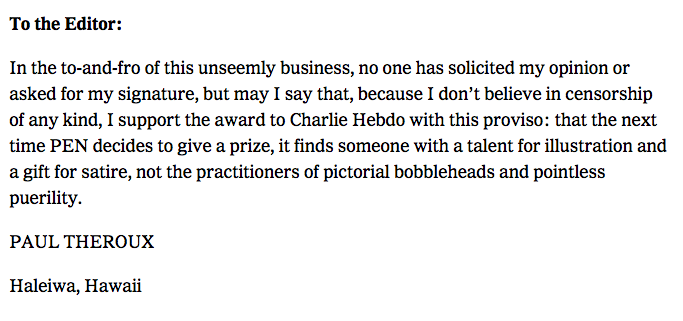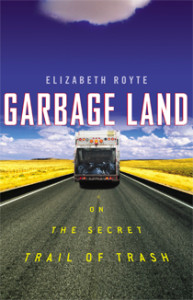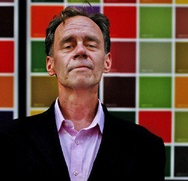 One of the challenges when thinking about this week’s terror in Paris was that much of the work of Charlie Hebdo was offensive, not in the least likable or defensible on anything but the broadest grounds.
One of the challenges when thinking about this week’s terror in Paris was that much of the work of Charlie Hebdo was offensive, not in the least likable or defensible on anything but the broadest grounds.
Another, as Teju Cole points out in the New Yorker, is the asymmetry between our hand-wringing about this assault on our liberty, and our indifference or silence about the actions of our governments taken in our names. He writes:
“Rather than posit that the Paris attacks are the moment of crisis in free speech—as so many commentators have done—it is necessary to understand that free speech and other expressions of liberté are already in crisis in Western societies; the crisis was not precipitated by three deranged gunmen. The U.S., for example, has consolidated its traditional monopoly on extreme violence, and, in the era of big data, has also hoarded information about its deployment of that violence. There are harsh consequences for those who interrogate this monopoly. The only person in prison for the C.I.A.’s abominable torture regime is John Kiriakou, the whistle-blower. Edward Snowden is a hunted man for divulging information about mass surveillance. Chelsea Manning is serving a thirty-five-year sentence for her role in WikiLeaks. They, too, are blasphemers, but they have not been universally valorized, as have the cartoonists of Charlie Hebdo.”
There is a little bit too much in Cole’s piece of the This-was-a-horrible-event-but sort of rhetoric, but he rightly shines a light on our preference for short-term reactions to events that present themselves as personal rather than engage in the formidable struggle to change the behaviors of governments. Of course he also scolds rather than point to an effective action to take.
But maybe there really isn’t a different course, an effective action, at least not until enough of us are suitably maddened about the way our governments make us complicit in their abominable actions in defense of our so-called liberties.




